Everyone wants a comfy home in New South Wales. A place that stays cool during the hot summer and warm in the winter. But who wants those crazy high energy bills that come with it? That’s where energy-saving sliding doors come in. uPVC is a common choice for these doors, but are they really that good at saving energy?
What makes a sliding door energy efficient?
Imagine your house is like a cooler in the summer and a heater in the winter. You want to keep the cool air in during hot weather and the warm air in during cold weather. This way, your AC and heater don’t have to work as hard, saving you money on your bills. So, what makes a sliding glass door good at keeping that cool or warm air inside? Here’s the key:
- Insulation: A good sliding door should keep the heat in and the cold out.
- Glazing: Double glazing with a sealed air gap is way better than single glazing to keep the temperature just right.
- Weather seals: Make sure the door has tight seals to keep the drafts out and the inside comfy.
How do uPVC sliding doors measure up?
uPVC is awesome for making sliding doors that save energy:
- uPVC is a natural insulator, so it helps keep the surroundings warm in winter and cool in summer. It’s better at keeping things warm or cool compared to traditional timber materials.
- uPVC is tough and can handle rough weather without warping, cracking, or rotting. This means the door stays strong, and the weather seals keep working well over time.
- uPVC needs minimal upkeep, unlike timber. This means no worrying about painting or staining regularly, which saves time and money.
It’s important to note that while uPVC itself offers good insulation, it’s just one piece of the puzzle.
Is double glazing the secret weapon of energy-efficient sliding doors?
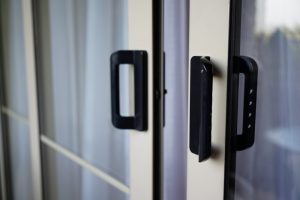
Double glazing is where uPVC sliding doors truly shine in terms of energy efficiency. Here’s a breakdown to help you in understanding the benefits of glazing:
- Keeps you cosy: Double glazing is like a shield, keeping your home warm or cool depending on the climate.
- Peace and quiet: They add another layer that blocks out noise from the outside, making your home peaceful.
- No more foggy windows: The space between the windows stops moisture from building up inside, so you won’t have to worry about mould.
Most uPVC sliding door companies provide a range of double-glazing solutions with varying thickness and coating for your convenience and cost consideration.
What’s the difference between single and double glazing for uPVC sliding doors?
- Single pane windows: These windows have just one layer of glass. They don’t block heat very well, so your home can get too hot in summer and too cold in winter. This can make your energy bills go up and your house feel uncomfortable.
- Double pane windows: These clever windows have two layers of glass with a bit of air space in between. This air gap acts like an insulator, keeping your home cooler in the summer and warmer in the winter.
For most homes in NSW, the results revealed that double glazing is the ultimate solution in terms of energy efficiency. Though it may cost a little more than the traditional methods initially, the amount of money that is saved on electricity bills in the long run is worth it.
What is the importance of proper installation of uPVC sliding doors?
Even the most energy-efficient uPVC sliding doors will not operate efficiently if not well installed. Here’s why it’s crucial:
- Airtight Seal: A pro will install your sliding door nicely so there aren’t any cracks around the edges. This keeps out those annoying breezes and helps your home stay relaxing.
- Alignment and Functionality: Proper installation makes your sliding door function well and be properly aligned. This avoids gaps that may affect the efficiency of energy and even cause the early deterioration of equipment.
When choosing a supplier, ensure they offer professional installation services by qualified personnel.
Can you improve the energy efficiency of existing sliding doors?
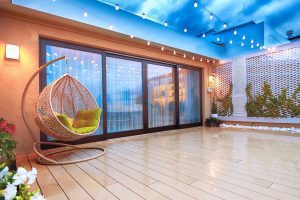
If you’re not ready to replace your existing sliding doors, there are still ways to improve their energy efficiency:
- DIY window insulation kits: These temporary solutions can be used on the interior of your existing glazing during colder months. They are not as efficient as double glazing but they do offer some extra insulation and help to stop heat from escaping.
- Weather seal replacement: In the course of time, the weather seals become worn out and are no longer as efficient as they used to be. Check the existing sliding door for any signs of wear and tear in the seals. Simply putting new seals in place of the old ones can greatly enhance the level of insulation and the reduction of drafts.
- Thermal curtains: These should be hung on your sliding doors to ensure extra insulation, especially during the night. Choose curtains with a blackout lining for additional advantages.
Important Note: Although these methods can help enhance the energy efficiency of the existing doors, they are not as efficient as having a new energy-efficient double-glazed uPVC sliding door.
How much can energy-efficient sliding doors save you?
The exact amount you can save on your energy bill with fancy new sliding doors depends on a few things:
- For weather warriors: If you live in a place that’s either burning up or freezing all the time, these doors will really make a dent in your energy bill.
- Busy doors, big impact: The bigger the door and the more you use it (think patio door in summer!), the more it affects your energy use.
In conclusion, uPVC sliding doors offer a significant advantage in energy efficiency for homes. Their superior insulation properties, combined with double glazing technology, effectively reduce heat transfer, lowering energy consumption and saving on utility bills. Additionally, the durable nature and low maintenance requirements of uPVC make it a cost-effective and long-lasting choice. By investing in energy-efficient sliding doors, homeowners can create a more comfortable and sustainable living environment while enjoying the financial benefits of reduced energy costs.
For those considering shower screen glass thickness, uPVC sliding doors offer a reliable and energy-efficient option. The combination of uPVC’s insulating properties and double glazing ensures a warm and comfortable bathroom environment, even in colder climates.
Find the right energy-efficient sliding door for your needs
Having learned the advantages of energy-efficient sliding doors, it is high time to choose the best one for your house. Are you ready to open the door to energy efficiency, comfort, and style? Contact uPVC Windows Expert for a free consultation. Let us assist you with the selection process and help you choose the best energy-saving sliding door for your NSW home.

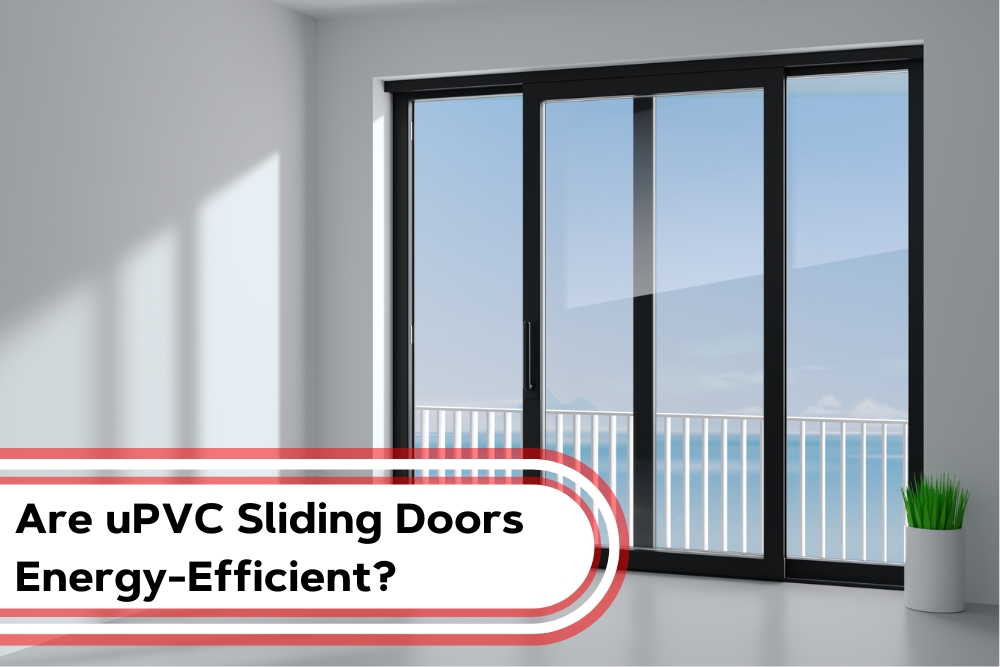
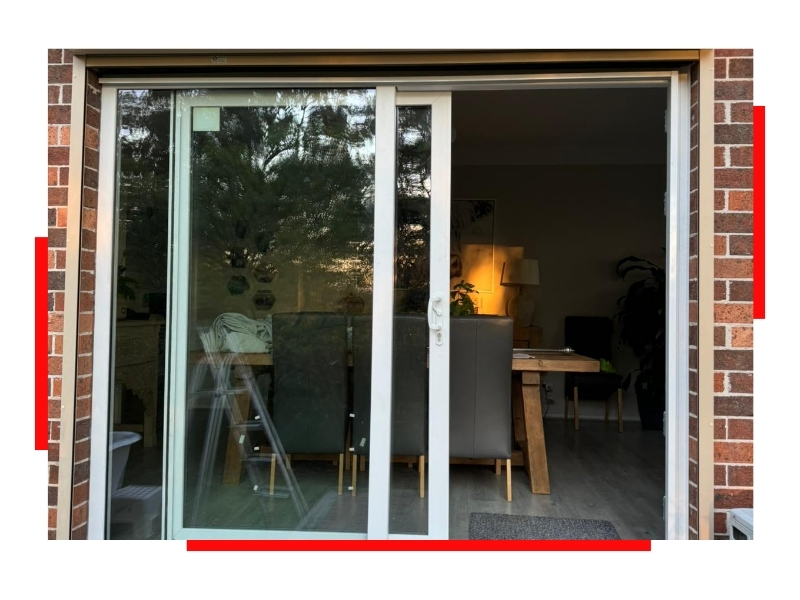
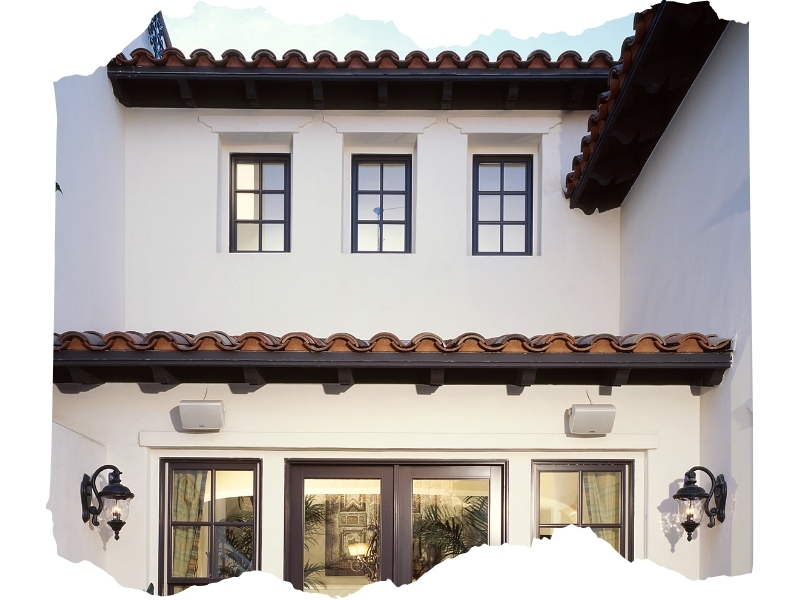
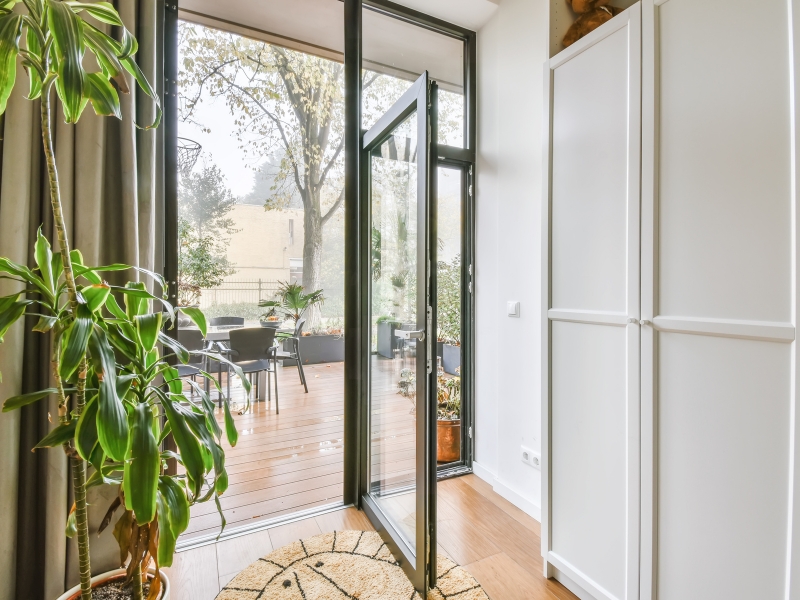
 Enhance your home with our energy-efficient, soundproof windows & doors. Enjoy a FREE onsite measure & quote.
Enhance your home with our energy-efficient, soundproof windows & doors. Enjoy a FREE onsite measure & quote.  Please provide your phone,
Please provide your phone,  email &
email &  suburb to begin!
suburb to begin!